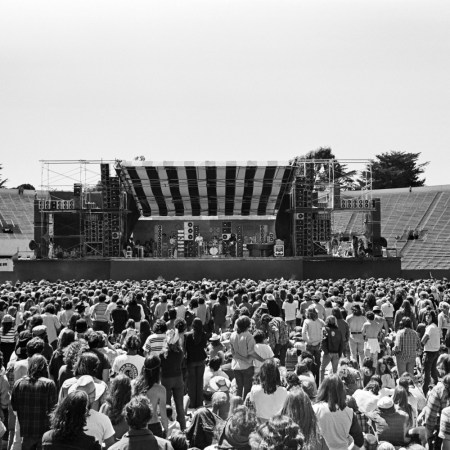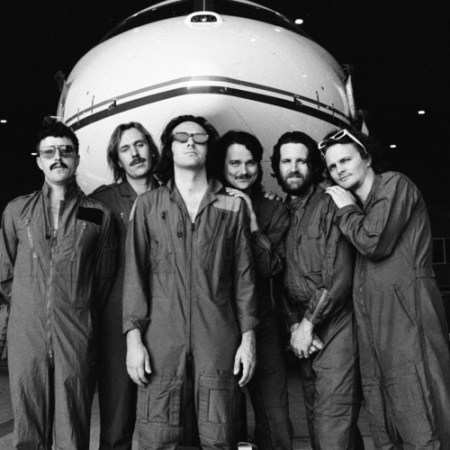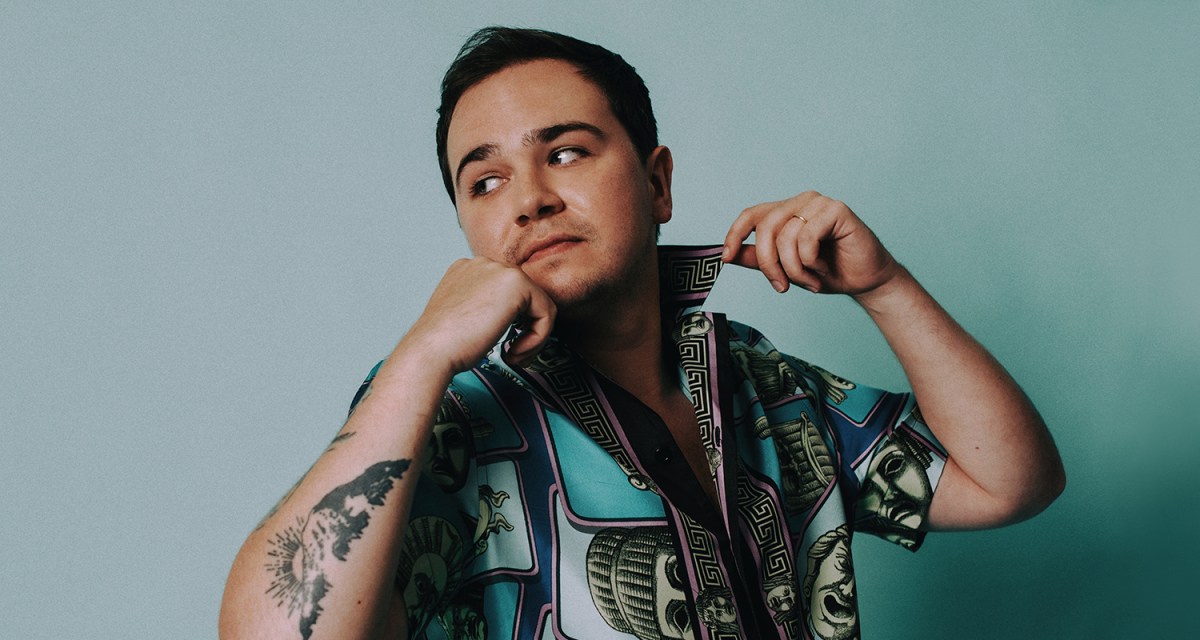
By Mike Conklin
Walking beside Tommy Prine through Carter Vintage Guitars in Nashville, I get the distinct feeling we’re being watched. Or that he is, anyway.
The shop is among the most famous in the world, a well-known mecca for high-end guitars, with a focus on extremely sought-after old acoustics. If you were in the market for, say, a 1960s Martin D-28 owned by Graham Nash and Judee Sill and you had $60,000 burning a hole in your pocket, you’d be well-served by a visit to Carter Vintage. Or maybe a pre-World War II 000-42 is more your cup of tea and you’re willing to part with $100,000 to acquire said cup of tea. Again, Carter Vintage would be the place to go.
All of which is to say that Carter Vintage is also very much the type of place where people might recognize Tommy Prine, the 27-year-old son of legendary country-folk singer John Prine, who died of COVID in April of 2020 after 50 years spent developing one of the most dedicated fanbases in all of popular music. He’d been in the midst of a late-career resurgence after releasing the astounding Tree of Forgiveness in 2018 and being embraced by a younger generation of artists who seemed to give him new life: Jason Isbell and Amanda Shires, most notably, but also Kacey Musgraves, Margot Price, even Conor Oberst, all of them his disciples in one way or another. Nashville was his adopted hometown, and he was a regular at Carter, just as he was across the street at Arnold’s Country Kitchen, where he was famously fond of their meatloaf lunch special.
Tommy is walking up and down the aisles eyeing guitars with little more than passing interest, occasionally taking one down off the wall and finger-picking in a way that isn’t at all showy but clearly communicates that he can play. I watch one shop employee take note and let his eyes linger for a beat or two longer than he probably should have. At this moment, Tommy is three months out from releasing his debut full-length album, This Far South, and his world is slowly changing. With a whirlwind series of tours and promotion ahead of him, it’s about to start changing even faster.
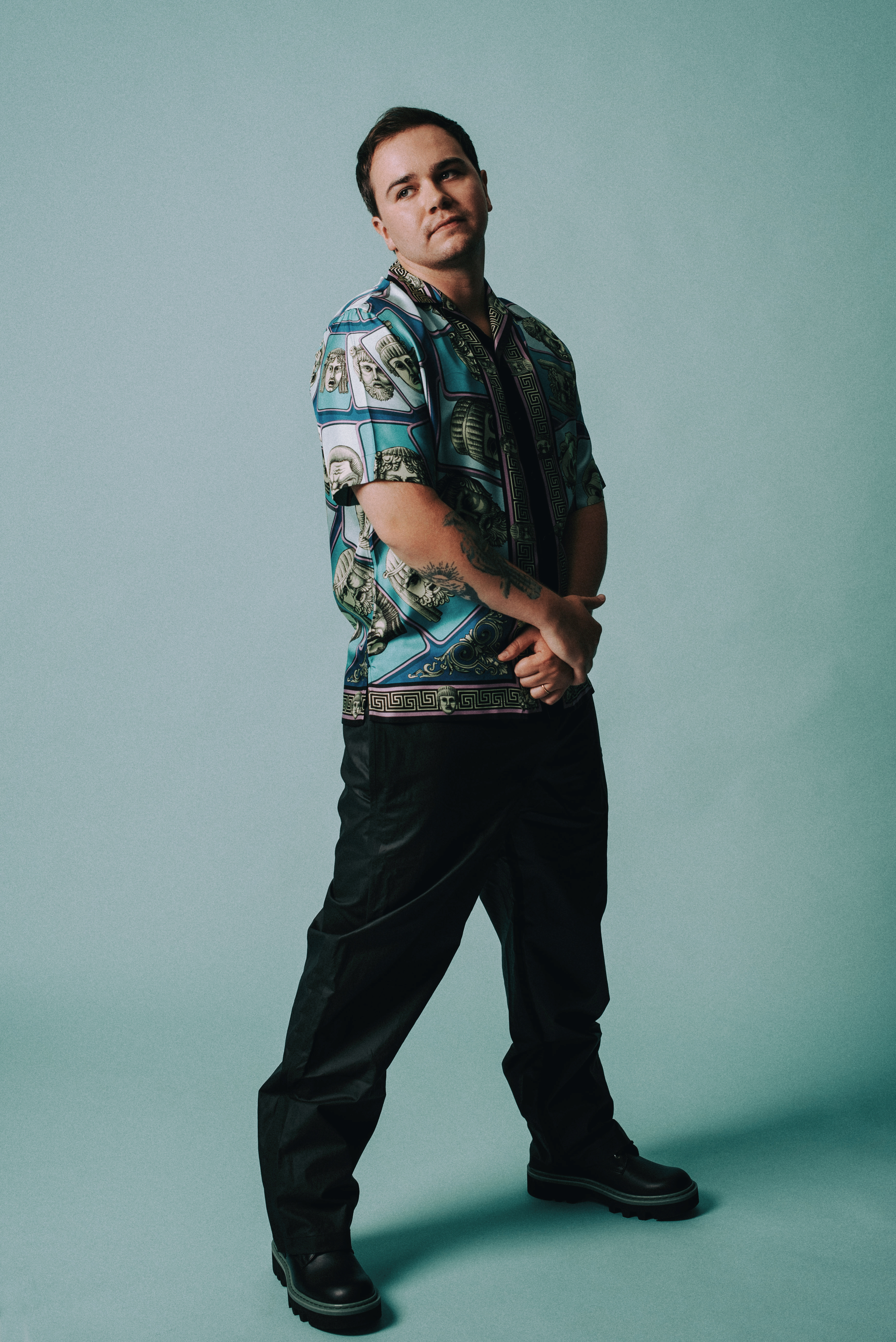
Tommy first started writing songs late in his teenage years — nothing of note, he says, and nothing he ever really shared with anyone. He did a brief stint at Colorado State University, before returning to Nashville. He doesn’t go into much detail about this period of his life. “I definitely had some years where I was really lost,” he tells me. There were drugs, bad decisions, a couple “very dark moments” and eventually real tragedy. “I lost one friend to a drug overdose when I was 19,” he says, “and then two years later I lost my best friend.”
It does not seem difficult for him to imagine a scenario where he would have suffered a similar fate, and he credits his wife, Savannah, with saving him from himself. “We had been friends for 10 years, from the time we were 13,” he says. “When we started dating at 23, she figured out that I wasn’t doing very well, and she was just like, ‘Fuck this, dude. I can’t watch you do this to yourself.’”
Over the next year or so, he cleaned up his act and started spending more time with friends who made music, “trying to build something that was worth being around for,” he says. He started to take his songwriting more seriously, and then after his father died, it became a sort of therapy. Remember, this was in the very earliest days of the pandemic, a difficult time for anyone to keep their shit together, let alone a 24-year-old who’d just lost his very famous father.
In fact, it was on Father’s Day of that year when, hanging out at his mom’s house and unable to sleep at one in the morning, he called up his buddy, Nashville musician Ruston Kelly, to see if he was awake and down to hang out. He was, and they spent hours in the middle of the night playing guitars, exchanging songs. Tommy played an early version of what would become the title track on This Far South. Kelly asked him if he’d ever demoed it, and when Tommy said he hadn’t, Kelly suggested that he should, and offered to help. They went into the studio to make a demo, which Tommy excitedly describes as the most fun he’d ever had — and then months passed before Kelly even so much as mentioned it.
Cut to November of that year, when Tommy was on the receiving end of a conference call from Kelly and his friend, Nashville producer and engineer Gena Johnson. “They were like, ‘Hey, so you’re going to be an artist,’” he says, “and we’re going to produce your album for you.”
Until she was suggested to me as an additional source for this story, I was not familiar with Gena Johnson, which now makes me feel like a real asshole. She’s an all-around studio wiz with production, engineering and/or mixing credits on basically every cool record to come out of Nashville in recent years. Jason Isbell, Chris Stapleton, Amanda Shires, The Highwomen, Kacey Musgraves, Brandi Carlile. Even John Prine’s Tree of Forgiveness, not to mention his final-ever recording, the crushing and brilliant “I Remember Everything,” which she recorded in his living room. She is no fucking joke — a true force despite being as good-natured and warm as anyone you’ve ever met.
The impact that she, along with Ruston Kelly, had on This Far South cannot be overstated. For starters, they assembled a backing band anyone in Nashville would kill for: Fred Eltringham (Sheryl Crow, Lucinda Williams) on drums, Eli Beaird (Luke Bryan) on bass, and Sadler Vaden of Jason Isbell’s 400 Unit on lead guitar. What they wound up with is a collection of songs that sound absolutely massive, even when they’re at their quietest. The production is gorgeous — shimmering and full without ever sounding overly polished or sterile like so much of the junk that comes out of Nashville. It’s marked by intimacy and warmth, but there’s no shortage of truly anthemic moments.
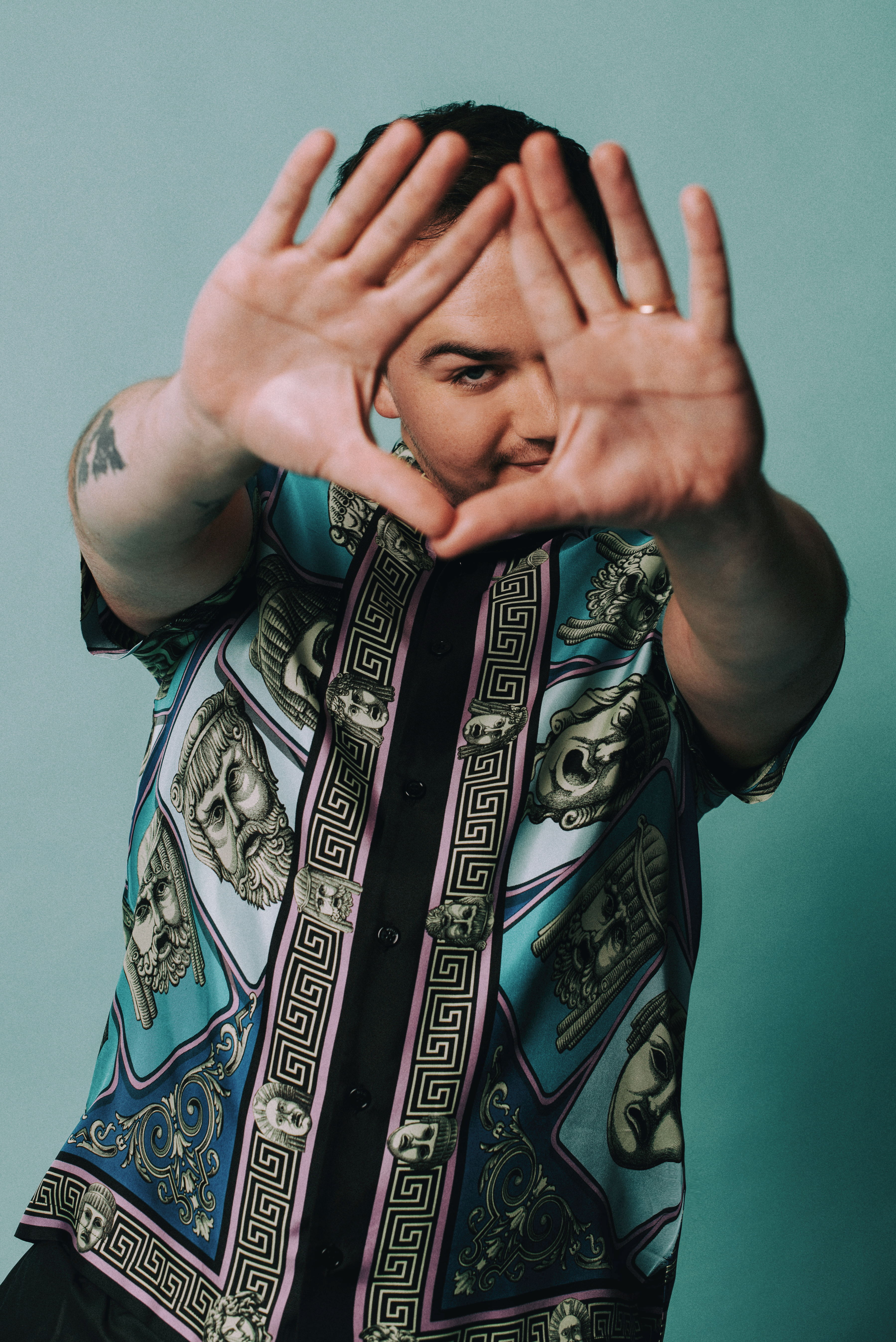
“Ruston and Gena changed my life,” says Tommy. “They saw in me what I didn’t see in myself. And that’s something I hope everyone in the world gets to experience in their best friend.”
Speaking with Johnson at her home studio later that night, I relay some version of this quote to her.
“That’s going to make me cry,” she says. “He’s just such a sweet, thoughtful guy. And he actually is that person. That’s the crazy thing. A lot of people you meet, and you’re, like, waiting for the other shoe to drop. The shoe doesn’t drop with him. I mean, that whole family.”
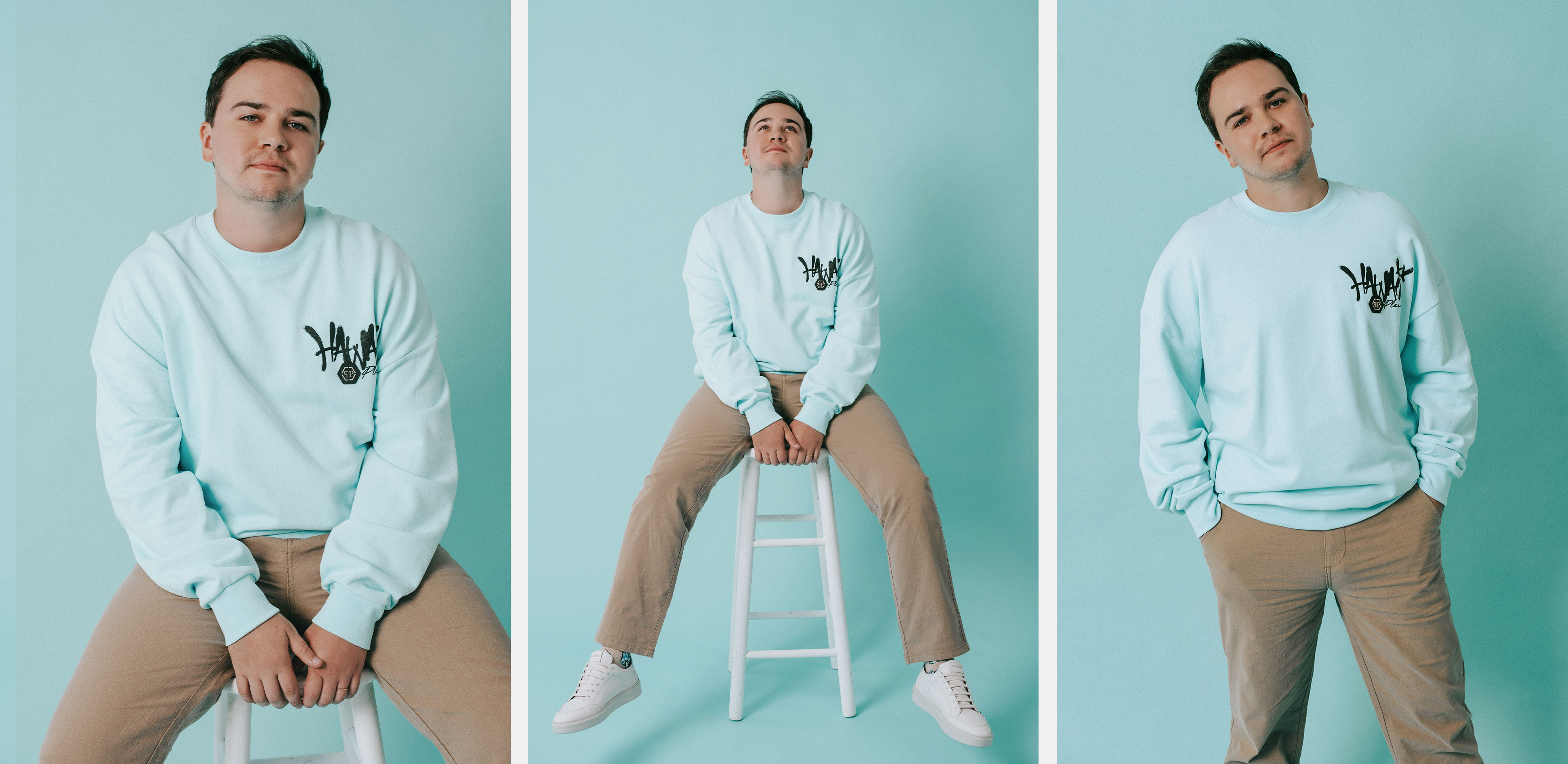
Tommy is the youngest of three boys born to Fiona Whelan Prine. His brother Jack was born just 10 months before him, while the oldest, Jody, was adopted by John from one of Fiona’s previous relationships. Jody runs Oh Boy! Records, the label founded by John in 1981 to release his own music, which it did until the very end, along with records by artists like Kelsey Waldon and Arlo McKinley. When I ask Tommy if there was a moment when he’d considered releasing his record on Oh Boy!, he makes it clear that it was never going to happen.
“That’s something I shot down right away,” he says. “[Jody] agreed. He was like, ‘I wouldn’t sign you.’ And I was like, ‘Thank you, dude. I honestly appreciate that.’ I want to do this for the rest of my life, and if I lean too hard on the Prine thing, it’s going to get sticky.”
If you’ll allow me to go a little bit meta here for a second, this concern — leaning too hard into “the Prine thing” — is something that comes up frequently, at various stages of putting this feature together. His publicist, bless her, was very clear from the get-go that this could not be a piece about John Prine, that Tommy is his own artist and that the record isn’t even as much about John as you’d think. When discussing the direction we would take for the photos you see here, InsideHook’s creative team first suggested something more western-inspired: cowboy hats, etc. I knew it would be shut down immediately, and it was.
This is all completely understandable. John Prine was one of the most beloved songwriters on earth for a very long time, in addition to being Tommy’s father. No one should ever have to deal with the pressure of living up to something like that — the potential for trauma at every turn is readily apparent, and it makes sense that everyone involved is trying to protect him from that.
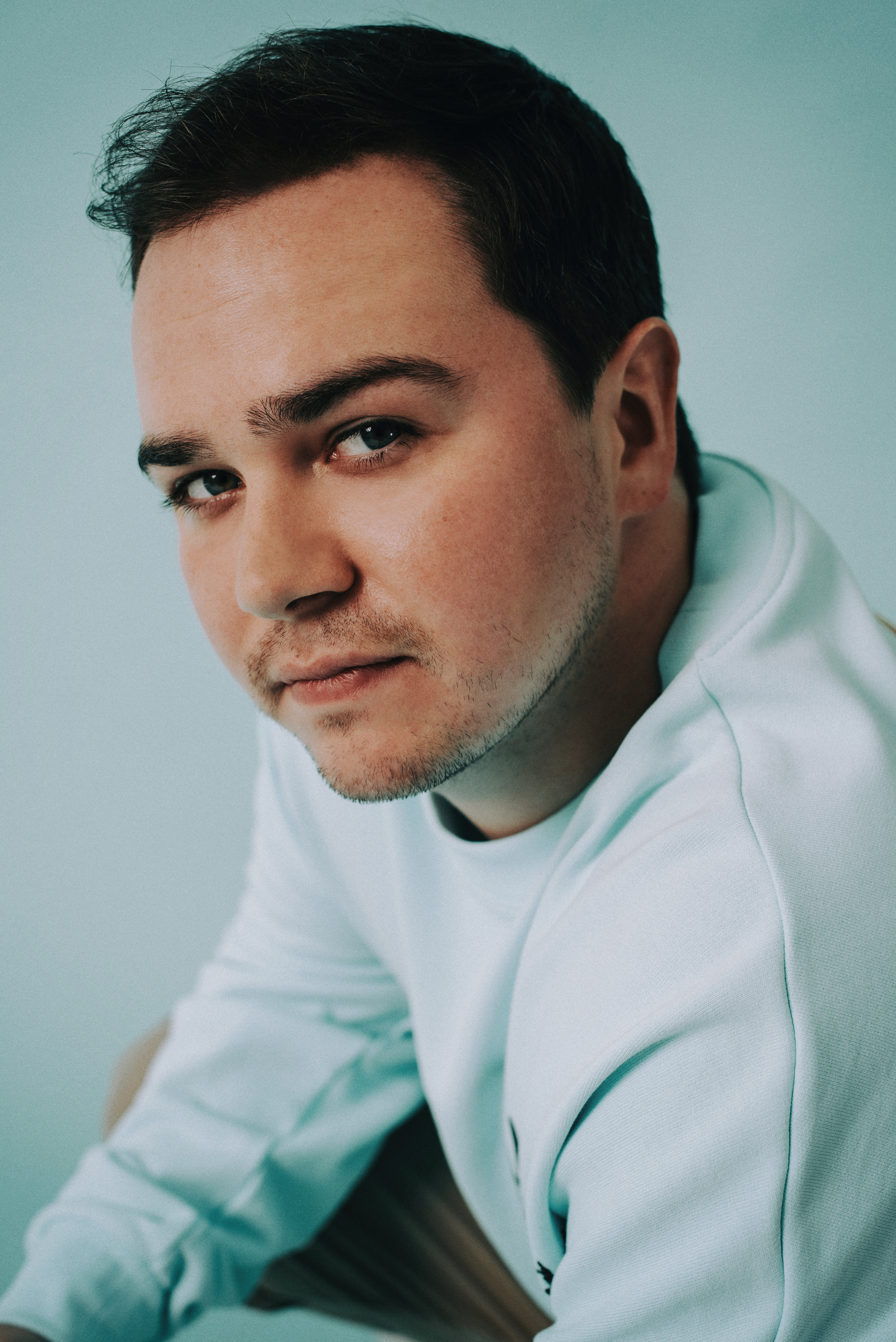
But in person, seated at a bar over beers in the middle of the afternoon, I explain my predicament as a person who’s traveled from New York to write a story about a young artist in Nashville who most people, even lots of people who really loved his father, don’t even realize exists. It’s a dance I’m perfectly willing to do, but when it comes down to it, he’s fine talking about John. I ask him about the weight of expectations and what he had to overcome to make the record at all — hell, to write a song at all, or even pick up a guitar in the first place.
“Well that’s the answer right there. It was something that I knew I had to get over before step one. I honor it and I respect it, and I feel like the luckiest guy in the world that I have the parents that I have. And I love music. I love it because I love it, not because my parents told me to love it. And people are allowed to have their preconceived notions, and I get that — I’m not doing this so that I can continue the Prine legacy. I’m doing this because I don’t know what else I can do with my life. This is everything to me. We can talk about the crushing weight of my father’s legacy, but I just don’t see it like that, man. I see it like I’m walking with it.”
A few months later, Tommy’s in New York City to play a show at Cafe Wha. The room is packed with people who are loving every second of it. Afterwards, he’s set up outside the venue under a little tent on the street selling merch. I want to say hello, and I want to buy a T-shirt because I’m a dork. The line is down the block, and I notice that it’s moving far slower than any merch line has any business moving. And it’s not because there’s an Eras Tour amount of merch to choose from — it’s because damn near every single person on the line stops to ask for a photo and to tell him how much his father meant to them. It’s sweet, but it’s also extremely heavy.
Back in Nashville, before I’d even witnessed it firsthand, I ask if he gets saddled with that sort of thing often.
“Yeah, man. It’s hard, but I get it. And I welcome it. I do, I like talking about my dad. I don’t want to not talk about him. I love my dad, and of course I miss him, but I want to talk about him,” he says. “He’s obviously the most important man in my life, but then I also understand that he’s a very, very important person in a lot of other people’s lives. And I think it’s really beautiful.”
A moment later, though, we laugh as he continues talking about people who share how devastated they were by his father’s passing. “There’s only been one or two people who’ve done this, but they’ll be like, ‘You don’t understand. You really don’t.’ I know there’s a colloquialism in there,” he says, “but when they double down on me like, ‘No, I don’t think you know,’” I’m like, ‘you know what? I think I have an idea, dude, how hard it was to lose him.’”
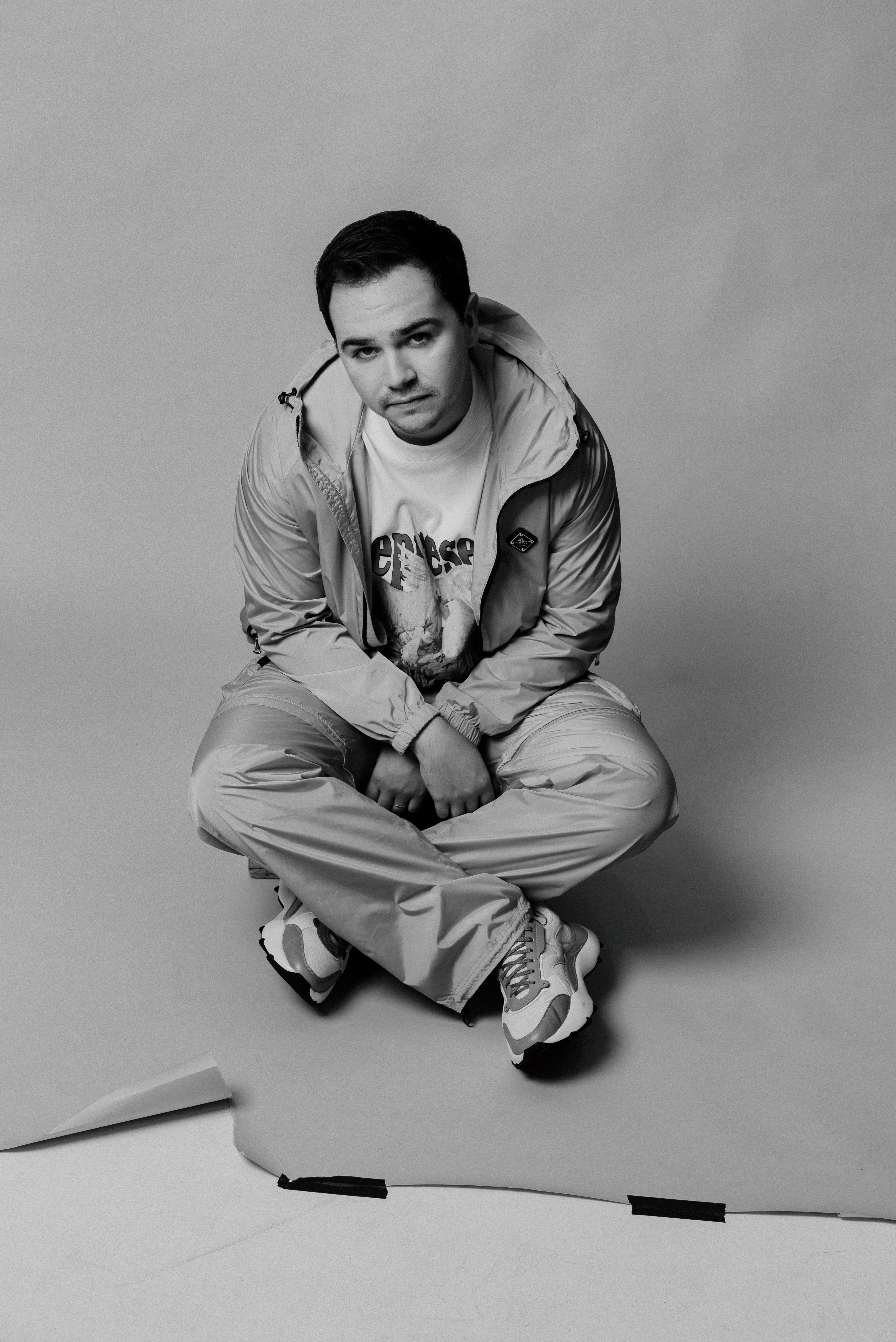
Tommy Prine is surrounded by people with huge personalities and considerable influence in their respective universes. Gena Johnson, as mentioned, is a low-key power player with a Grammy sitting right beside her mixing desk. Ruston Kelly is an established artist with a public divorce from Kacey Musgraves under his belt. There’s the Sadler Vaden connection to Jason Isbell and Amanda Shires. And there is, of course, his mother, Fiona, John’s widow. She’s a force like almost none I’ve ever witnessed. Vital and energetic enough to defy all logic, she’s acting as Tommy’s manager right now, and if you’re wondering whether there’s any disconnect or obvious generation gap mucking things up, there very much is not. She’s somehow the coolest person in the room, no matter the room.
Tommy, for what it’s worth, does not really have this kind of presence, which is by no means a slight. There’s a wide-eyed innocence to him, a childlike quality that is incredibly endearing and — I’m sorry to do this — somewhat reminiscent of his father. I saw John Prine perform at New York City’s Town Hall in 2005, and I remember a bit of between-song banter where he talked about how easily distracted he was when it came time to sit down and write a song. The gist was that 10 times out of 10, he would choose eating a hot dog over getting any actual work done. Tommy’s version of a hot dog, or that famous Arnold’s meatloaf, for that matter, might be a video game and an edible, but it’s definitely the same idea.
There’s a sense, though, that the people around him believe so deeply in his talent, in his ability to forge real connections with people through his songs, that they’re willing to help guide him — to put him in the best position to succeed.

The songwriting on This Far South defies Tommy’s lack of experience, if not his bloodline. He’s a sneaky good guitarist who messes around with alternate tunings and unexpected picking patterns, and he has an ear for melodies that manage to be complex and extremely catchy at the same time. The star of the show, though, is his voice. It’s powerful and deep, not unlike that of Jason Isbell, an artist he cites as a massive influence.
“My mom was like, ‘Hey, this guy just put out a record, it’s called Southeastern, and I think you would like it,’” he says. “And, dude, that album changed my brain. Literally, listening to that record, by the end of it, I almost understood my dad more in a way. Jason really looks up to my dad, and so every time I’d listen to my dad’s music after hearing that record, it was like I was hearing it for the first time. I think it really just opened up my heart and my mind. And I just haven’t looked back since.”
The subject matter on This Far South can be grim at times. There’s a lot of death and loss and grief, and on the title track, especially, there’s a dark but weirdly freeing sense that rock-bottom has been hit. There’s also a palpable upside to things, though, an optimism and a sense of direction that feels extremely wise.
That wisdom, though, is hard-earned, and he shows his work in getting there. “By the Way” is the song that will most immediately stand out upon first listen. It’s obviously about his father, and it’s heartbreaking, but then also not. “I don’t want to think about the excuses that I made,” he sings, “All those nights I should have just sat down and played spades,” lamenting the way he put off spending time with his old man, probably in favor of doing some things he’s not entirely proud of. But then he flips it on its head and does what seems like speculative John Prine writing in response: “Don’t keep all that in your heart, son. It’ll just drag you down. Even if you fight it or don’t like it, the world will keep spinning ‘round.” If it’s an impression he’s doing, it’s an extremely believable one. By the time he shifts perspective back for the refrain — “By the way, people say I look just like you” — it’s almost too much to bear.
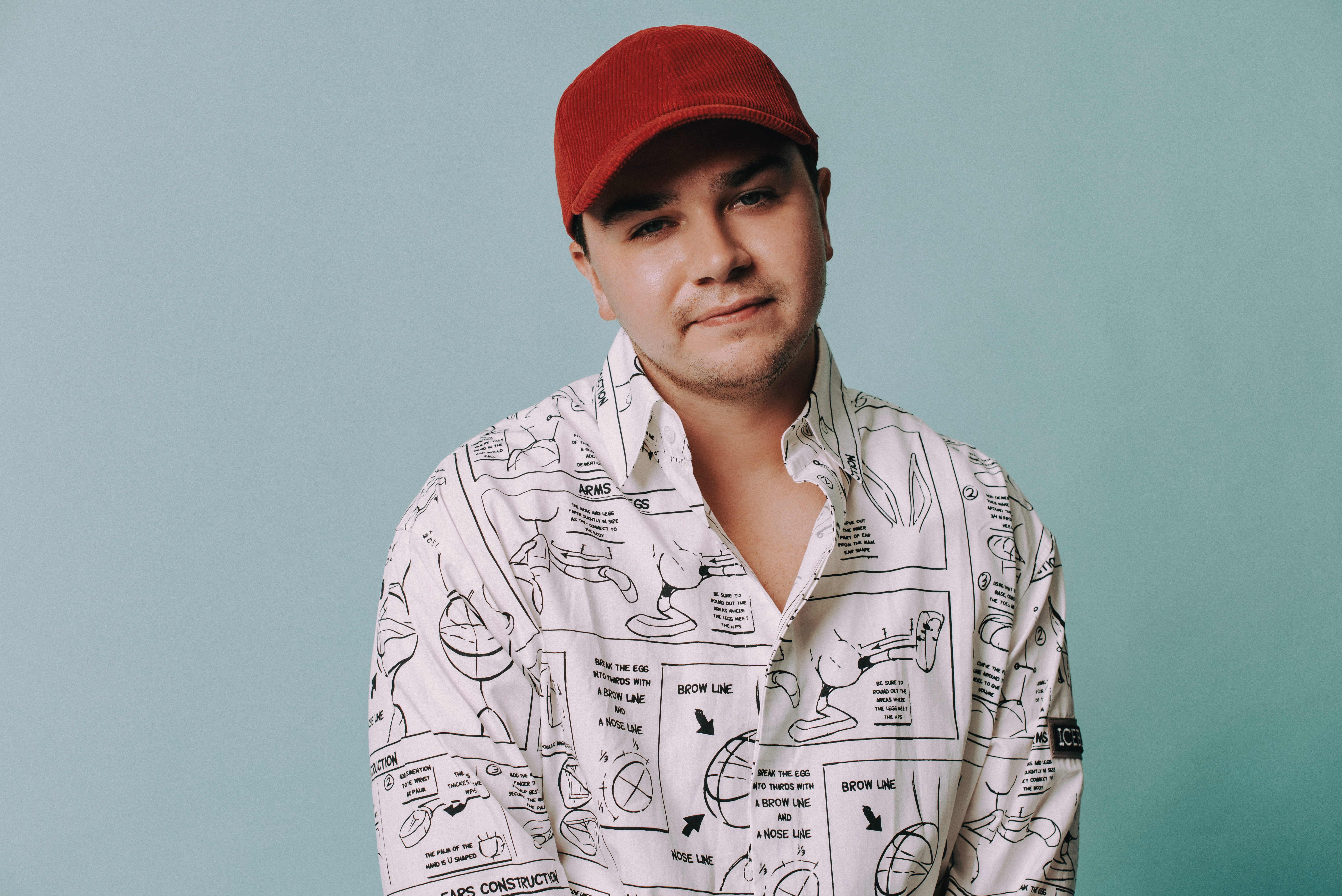
For all the sadness he’s carrying around with him, and for all that he’s been through, there is no mistaking that he’s having a blast doing what he’s doing. During my conversation with Gena Johnson, she tells me a story about talking to Tommy after he’d played with his father at the Newport Folk Festival. “He played a 20-minute set or something,” she says. “And he comes back and he just goes, ‘I have the bug. The energy. I’ve got the bug.’” This comes up when I speak with him, too. Describing the feeling of performing a song for the first time and having it go over well, he says, “Dude, it’s the best. I’m like, ‘I knew I was right. Let’s go!’ It’s the best feeling in the world.”
At this point I tell him a story from a few nights earlier. I’d taken my then-12-year-old, music-obsessed daughter to see Maya Hawke perform at the Music Hall of Williamsburg, in Brooklyn, and at one point in the show, after the crowd sang enthusiastically along to a song that had not yet officially been released, Hawke said something that stuck with me: “It’s embarrassing how much I like it when you do that. No one’s ego needs this.”
It struck a chord with Tommy, too. “Oh, yes. Yes. It’s a horrible drug,” he says. “I literally feed off of it. Like a monster, I feed off of it. It’s this big adrenaline rush, and there are these huge waves of attention and validation that you get — and then all of a sudden you go home and you’re like, ‘Oh, I gotta clean the fucking cat’s litter box right now,’ and it fucks you up.”
For now, though, it’s Thursday, March 16, and he’s about to go on stage at The Basement East, a small but important Nashville club where he used to work the door. He’s playing there each Thursday in March, with the exception of March 23, his wife’s birthday (“I might not seem like it, but I’m smart,” he says), and every show is sold out. “He gets off stage and everyone is his best friend, and he’s so pumped that they’re there,” says Johnson. “And he grew up here, so it’s his whole community — old babysitters, old teachers, all of his best friends showing up for him.”
At each of the shows, he’s got a special guest with him. The first night, it was the excellent Katie Pruitt (“Katie rocks. She’s crazy good, dude. Her voice is the definition of next-level”), and the second night it was Ruston Kelly (“The most fun I’ve ever had on a stage”). For the show I’m at, it’s Amanda Shires. When I ask him exactly what she’ll be doing, he’s not sure and doesn’t seem to care. He’s thrilled, regardless. “I think we’ll probably just do ‘Ships in the Harbor,’” he says. “I hope she brings her fiddle, but I’m just super honored to have her there.”
She does bring her fiddle, and they do perform “Ships in the Harbor,” and it’s beautiful. The whole show is beautiful. He tells stories and he cracks jokes, and then he sings these incredibly powerful songs, and his voice fills the room in a way that is entirely overwhelming, and he seems so genuinely grateful to be there, to be doing what he loves in front of a room full of people who love that he’s doing it.
Just as he takes the stage, I’m standing there with Shires and Tommy’s mother, Fiona, who leans over to us and says, in her thick brogue, “I can’t even fucking look at him.” We know what she means, but we look anyway.
************
Photography: Anna Garbowska
Grooming: Mark Alan
Fashion/Creative: Kevin Breen
Assistant: Wesley Writter
